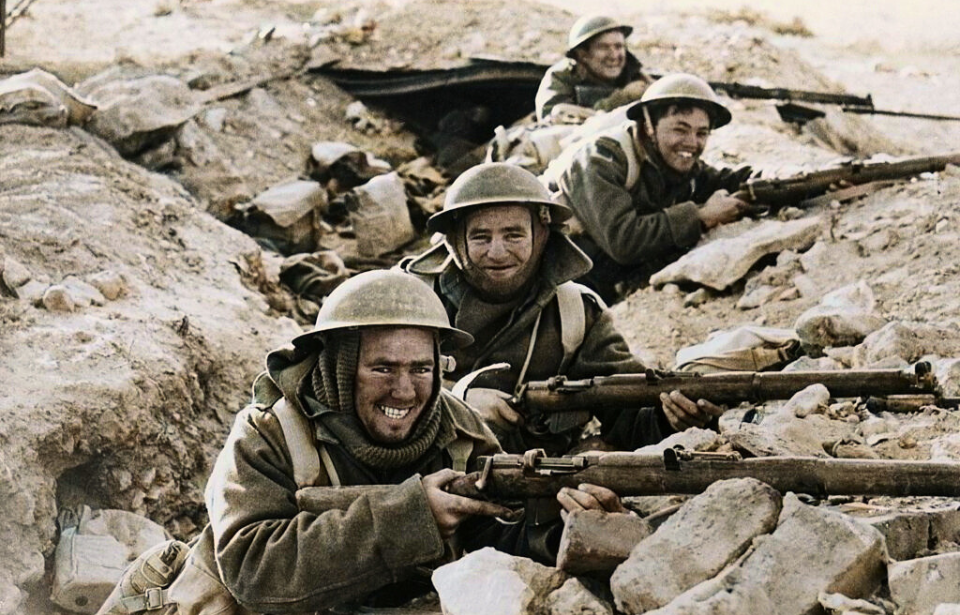Napoo
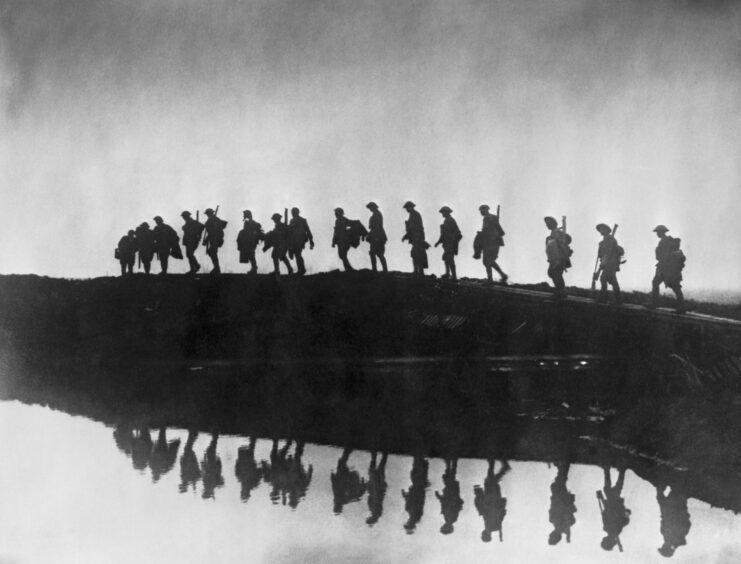
An expression that never became common in modern English is “napoo.”
This slang term from World War I has its origins in the French language. It derives from the French phrase “il n’y a plus,” meaning “there is no more.” English-speaking soldiers serving alongside the French in the trenches adapted the phrase for easier pronunciation, resulting in “napoo.”
The term was frequently used to refer to something that was finished, destroyed, or dead.
Blimp
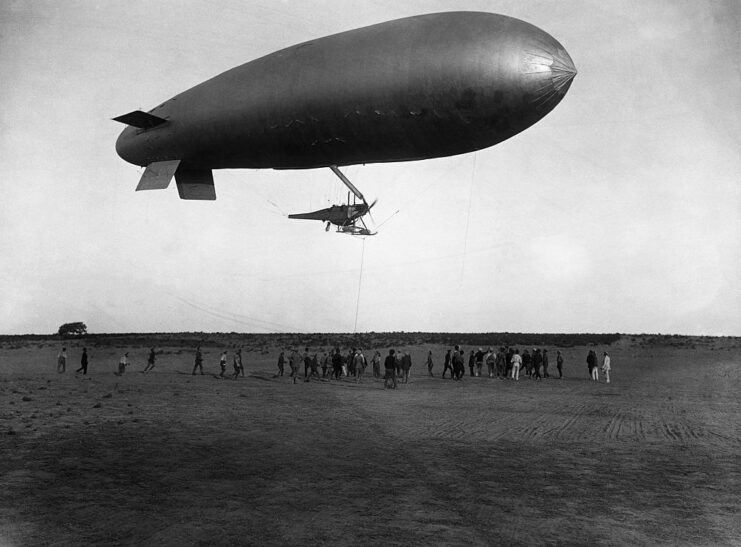
The term “blimp,” often associated with modern airships, originated during World War I, though its exact origin is unknown.
One common theory connects the name to the airship classification system, proposing that these flexible, non-rigid vessels, able to expand and contract, were labeled as “limp airships.” Under this system, they were categorized as B: Limp, giving rise to the idea that “blimp” is a blend of the category designation and the descriptive term.
Another, perhaps more likely, theory suggests that the name is onomatopoeic, imitating the sound produced by an airship when it is fully inflated.
Skive
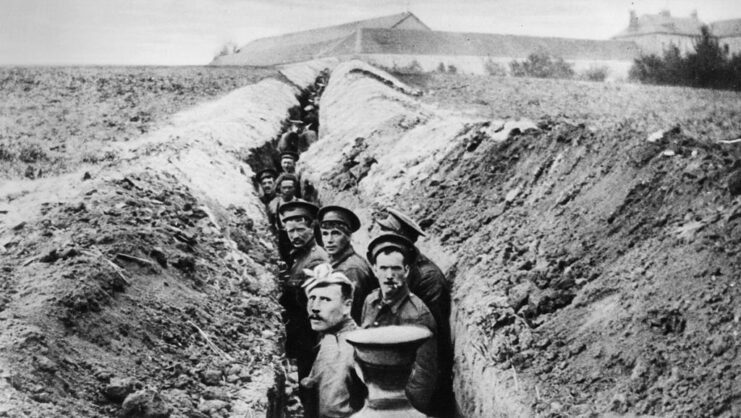
The word “skive” probably comes from an English adaptation of a French word, though its exact origin isn’t completely certain. It first showed up as military slang during World War I, and many experts believe it came from the French word esquiver, which means “to avoid” or “to dodge.” Soldiers used “skive” to describe getting out of work or ducking responsibilities.
If this connection to esquiver is accurate, it makes “skive” one of the more interesting examples of French slang that found a lasting place in English.
Blighty
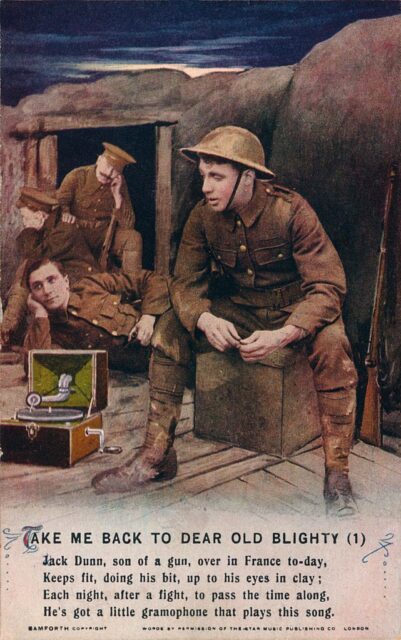
During World War I, British soldiers embraced a term with a deeper meaning: “Blighty.” Now a familiar nickname for Great Britain, Blighty’s origins trace back to Urdu. The words “Vilayat” and “vilayati” — meaning “settled land” and “foreign,” respectively — are the originals.
A regional adaptation of the Urdu term, “bilayati,” had made its way into British military vocabulary by the 1800s. However, Blighty signified more than just a place – it also referred to a particular type of injury. Serious enough to require a trip home but not life-threatening, a Blighty wound meant a welcome return to Blighty itself.
In a flap
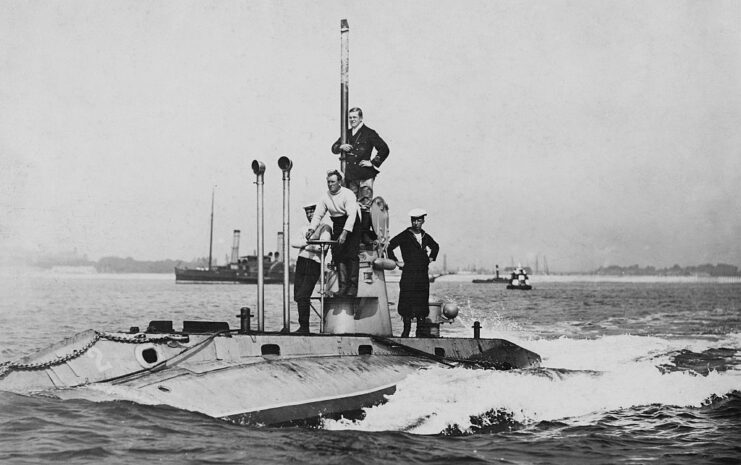
If you’re feeling anxious about something, you might describe yourself as being “in a flap.” This expression originated in 1916, during the height of World War I, and was commonly used by naval personnel. It likely draws inspiration from the restless flapping behavior of birds.
The phrase also paved the way for the term “unflappable,” which appeared much later in the 1950s and means being “unfazed.”
No bon
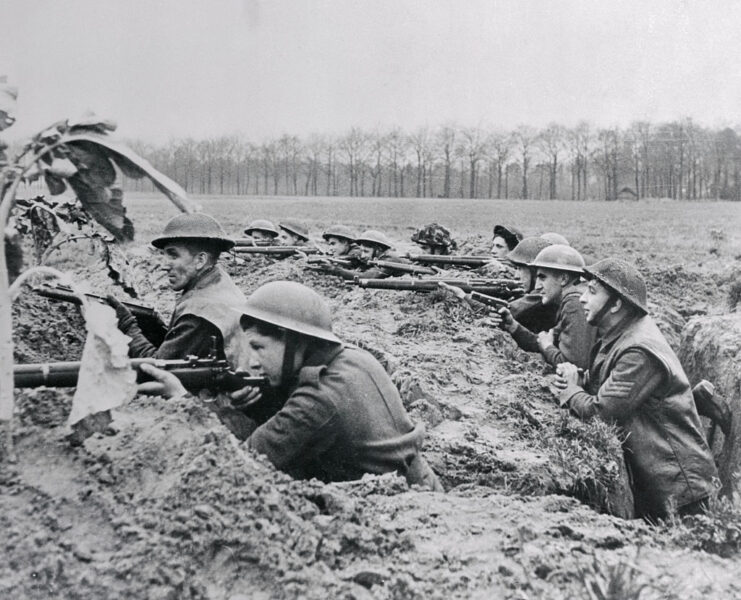
A slang expression that originated in the trenches of World War I but didn’t last is “no bon.” This term, a combination of English and French, was commonly employed by British soldiers—where “no” is English and “bon” is French. It translates to “no good,” as “bon” means “good” in French.
Over the top
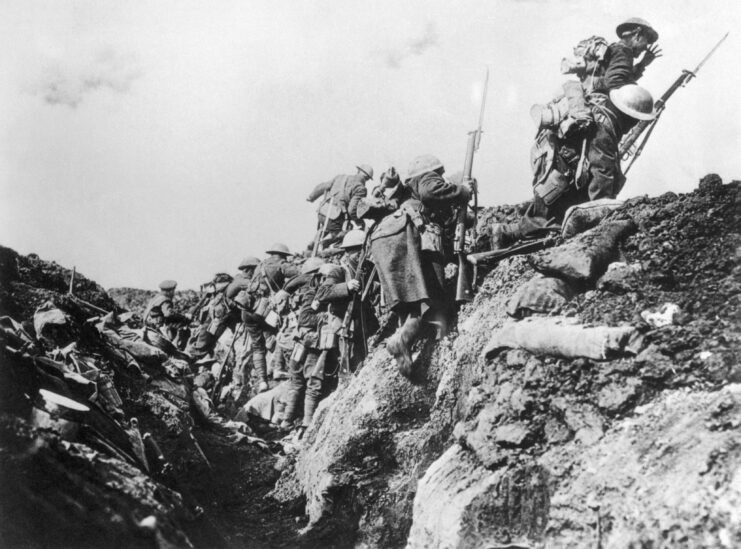
This World War I slang term has recently resurfaced, though it largely disappeared after the war.
Today, people use it to describe something over-the-top or unnecessary, which is quite different from its original meaning. During the war, it referred to soldiers climbing over sandbags and leaving the trenches to launch an attack.
It was also used to describe the beginning of a dangerous mission with little hope of survival.
